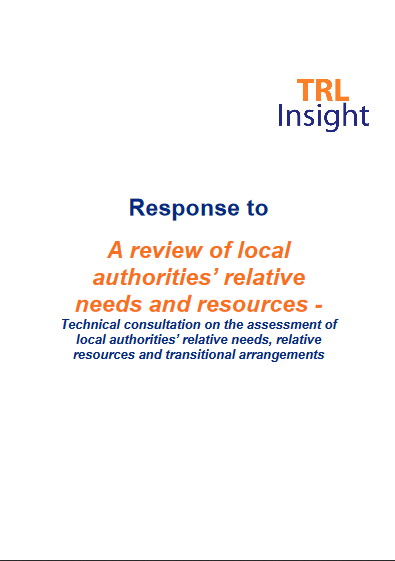Response to Fair Funding Review consultation
My response to the Government’s consultation A review of local authorities’ relative needs and resources, as submitted today.
Some minor amendments were made since a draft was uploaded here yesterday, in relation to the measure of council tax collection rate.
The consultation marks a key stage in the first full review of the local government needs formulae for around seven years. This review stands out from previous ones for its impressive level of collaboration between central and local government. This consultation appears to have resulted from a genuine partnership between the two sectors on the Fair Funding Review (‘the Review’) and the wider review of business rates retention. It is to be hoped that in future reviews of needs formulae, local government will again be engaged as an equal in policy development, or ideally take the leading role in it.
Key points raised in the response include:
- Transitional arrangements and use of tax base projections have a huge impact on incentives (financial rewards) for building homes and business premises. The nature of this impact depends on a) where in the calculation the transitional mechanisms are applied, b) what mechanisms are used and c) how the projections are calculated.
- Use of ‘lagged’ values for council tax deduction could provide an ‘incentive’ very similar to New Homes Bonus and allow NHB funding to be better focused.
- The MHCLG focus on simplification could be at the expense of accuracy and fairness. In particular, the proposed Foundation Formula covers very diverse services with very different drivers. There is a risk that this could leave some services in some areas significantly under-funded. The response proposes an approach to ensure this is avoided.
- It would be helpful for the Government to provide further detail in several areas, including the analysis it has done to date on highway maintenance expenditure. Reliance on two variables has risks for accuracy and robustness.
- The formula for concessionary transport for the elderly and disabled is already very simple, as it is based only on modelled boardings data. Actual boardings data is now available for almost all relevant authorities.
- It is worth considering whether regressions against service spend as proportion of total council spend could avoid perpetuating systematic biases. The response proposes looking into whether this is a statistically robust technique.

